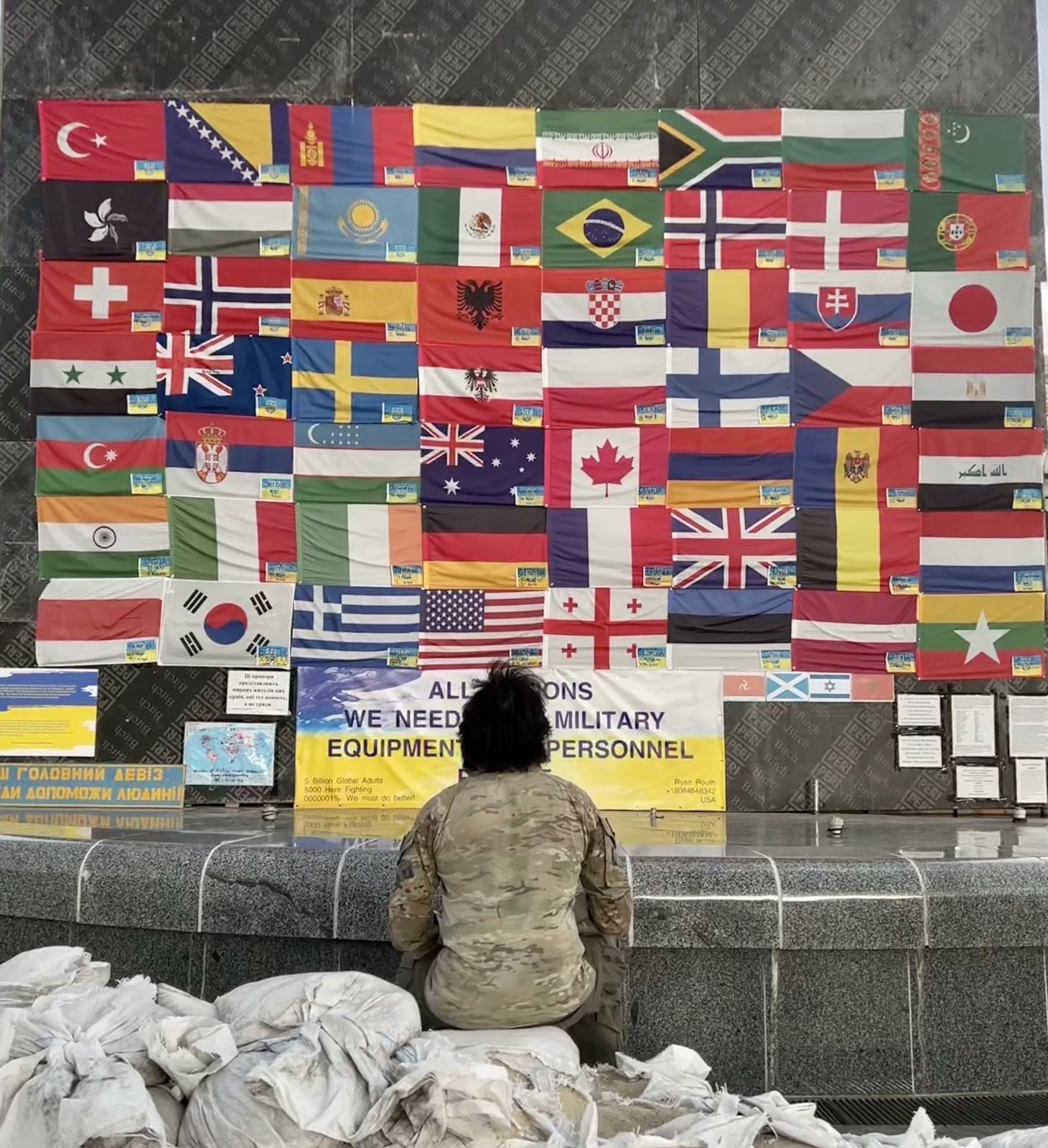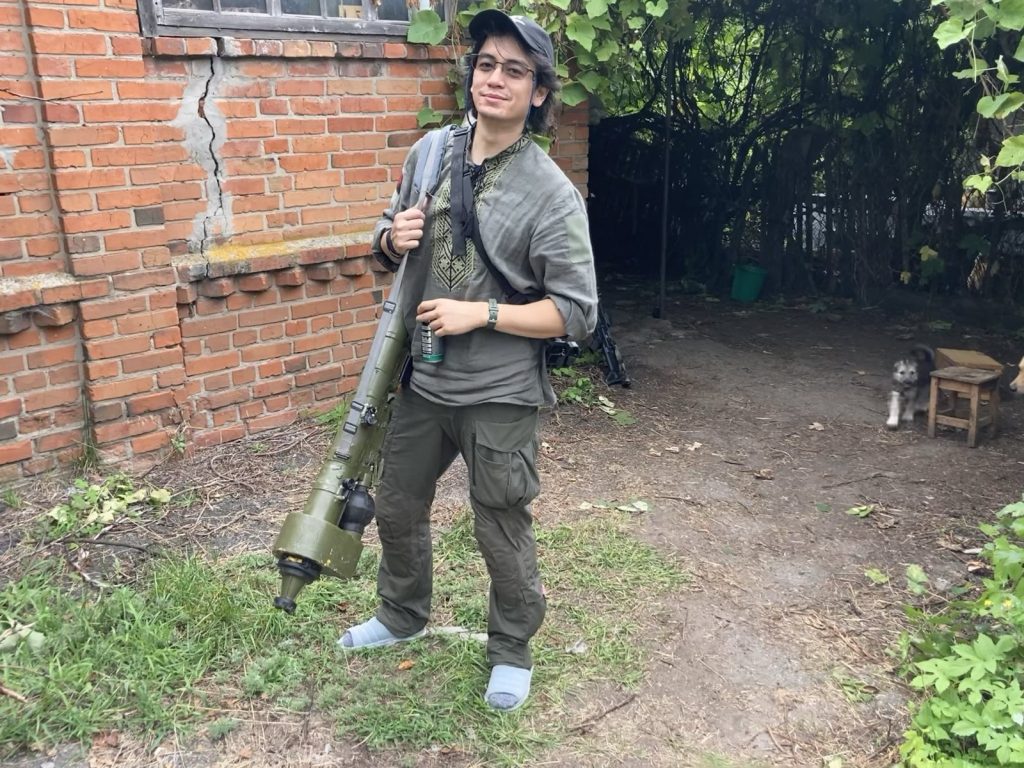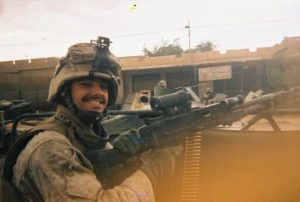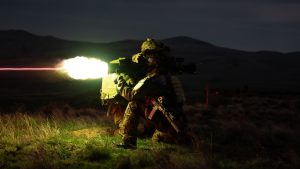No one can understand the horrors of wars in far-off places without going in person and experiencing daily life down range. That is why it is our mission to provide the Ground Truth from Operators with dirt under their fingernails to policymakers and the American people. Meet Lito: he is one of our boots-on-the-ground volunteers working on the frontlines in Ukraine. We sat down with him to learn about what led him to risk it all to help the people of a country thousands of miles from home.
Born in the Philippines and raised in California as a Navy brat, Lito enlisted in the Air Force and spent most of his career working in radio communications. “Dad wouldn’t even let me pick anything else,” he laughed. “We walked straight past the other doors and into the Air Force recruiting office.”
After his Air Force enlistment, he worked as a contractor for the US Army Signal Corps. During his second deployment to Afghanistan, he became connected with Joint Special Operations Command (JSOC) and eventually augmented into the Joint Communications Unit (JCU) for 2 years as a contractor. JCU is a technical unit of Special Operations Command (SOCOM) charged with standardizing and ensuring interoperability of communication procedures and equipment of JSOC and its subordinate units (https://www.jcu.mil/). JCU houses “the DOD’s Finest Communicators”. “They expected a lot from me,” Lito commented. “It was a privilege.” Upon completing his stint at JCU, Lito founded a couple of start-up companies and moved into advisory and consultancy roles.
When Russia escalated the conflict in Ukraine by invading in February 2022, Lito received a call from a buddy, who was already serving on the ground in a humanitarian capacity, asking for assistance. He didn’t hesitate to volunteer and soon found himself delivering supplies and doing humanitarian work in the most war-torn regions of Ukraine.
Originally, Lito had no intention to participate in combat, but former SOF connections, who had been fighting in and around Kharkiv since the start of the full-scale invasion, needed his communications expertise. He began to assist with setting up a Tactical Operations Center (TOC), and he organized communications for teams conducting reconnaissance patrols and direct-action missions underneath the banner of the International Legion of the Defence Intelligence of Ukraine (DIU Legion). Still, going out on missions was not on his radar. In fact, when he started working with the teams, he didn’t even have a helmet of his own for 3 months. “We just rotated the one helmet that fit me,” he chuckled. “Boonies caps are lighter when you’re doing “drecces” (drone reconnaissance), but with the amount of artillery and air-burst munitions raining down on us, I would have rather taken the helmet.”
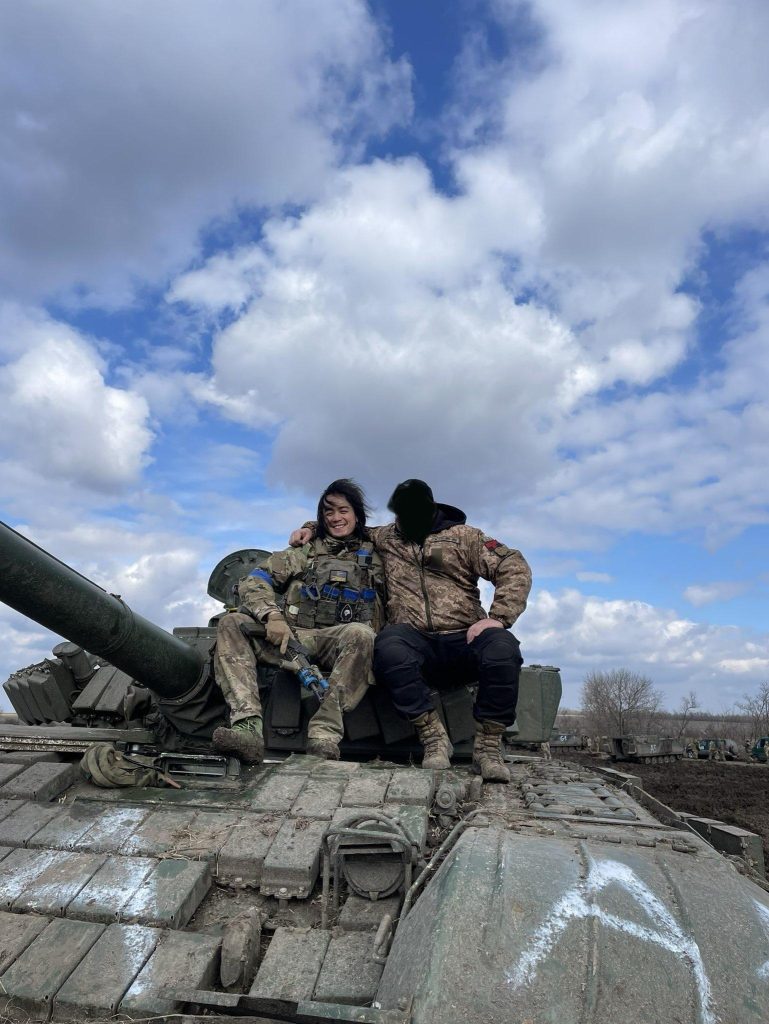
Making matters even more challenging, the majority of Ukrainian military leadership remains intact from the Soviet era. The training, policies, and strategic doctrine of Soviet-era military combat is archaic compared to the needs of modern warfare. “Soviet-era mentality” is often cited by Ukrainian citizens and warfighters alike, as an underlying reason for the lack of forward progress on the battlefield.
Lito now helps train Ukrainian forces in basic survival and soldering skills. Skills US troops learn during Basic Training are foreign to most of the civilians-turned-soldiers. Fundamentals such as noise and light discipline, how to start a fire, proper hydration, wound care, situational awareness, coordination, timing – these are the things keeping the Ukrainians alive and in the fight against Russia. It’s basic soldiering. “Shoot! Move! Communicate! That’s what works in Ukraine.”
We asked Lito what the conditions were like on the frontlines. He humorously compared the experience to “off-grid camping… with body armor and a gun… and someone is hunting you.” He continued explaining the dynamic battlefield conditions. “It’s different everywhere across the Forward Line of Troops (FLOT),” he said. “Zapo [Zaporizhzhia] has flat farmland, for example. Kharkiv is characterized by rolling hills, forests, rivers, and swamps, while Luhansk and Donetsk oblasts (also known as the Donbas region) are quite urban but have thick forests. There isn’t one solution or system that works everywhere.” He mentioned in some areas, the local populace is willing to provide shelter, food, water, and intel to the forces. Other areas are full of Russian collaborators and spies.
Lito’s mission endangers his life every day. What compels him to risk everything to fight shoulder-to-shoulder with a foreign military? There is both a simple and a complex answer. Simply, he was asked to go by a friend he trusted. On a deeper level, he expressed a sense of duty to fight on the right side of history. Having been on the battlefield before, he’d been face-to-face with enemies of freedom. He has seen the destruction caused by tyrannical leaders and he doesn’t wish that suffering on anyone. But what was once a sense of duty has become a deep love for the people and culture of Ukraine. When asked what he admired most about Ukrainians, without hesitation he answered, “Their unwavering loyalty — for better or worse, they have your back.”
Suffering binds people in a way nothing else can, and the people of Ukraine have known their share of suffering. You can see their fierce loyalty on full display through the sheer number of civilians who banded together to fight off Russia’s invasion instead of fleeing the country to safety. Lito explained that once he had broken bread with them and lived with them in the trenches, the trust and camaraderie they gave in return knew no bounds. He laughs, sings, dances, cheers in successes, and sheds tears for their fallen brothers and sisters, alongside Ukrainian fighters and other international volunteers like him. That loyalty keeps him in the fight.
In the coming weeks, Lito will be traveling around the US teaching incoming soldiers at various bases and debriefing strategic-level leaders at the Pentagon about the lessons he and his team learned and earned on the battlefield. While the US doesn’t currently have official troops in combat roles on the ground in Ukraine, training and sharing of information on modern Tools, Tactics, and Procedures being used in this war, and building evolving capabilities for future conflicts, are critical for the safety of our warfighters in future conflicts.
We are deeply grateful for Lito’s expertise, willingness to share his experiences, and the work he is doing on our behalf in Ukraine. You can play a critical role in helping Lito and others support Ukraine’s fight against tyranny! We can’t do this without your support. Please consider donating, HERE.


